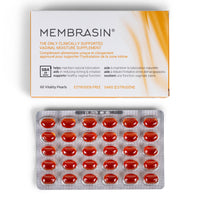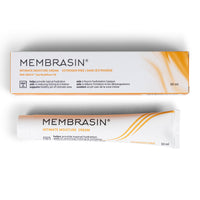Could My Lifestyle or Unhealthy Habits Cause Vaginal Dryness?
Many people associate vaginal dryness with menopause, probably because about half of menopausal women are affected by it. But vaginal dryness can strike at any time of life since it is caused by a wide variety of health, environmental, and other factors. Though the number one cause of vaginal dryness is diminished levels of estrogen, many women wonder if their lifestyle is the reason behind their suddenly dry vagina. The itching, burning, and discomfort during sex can motivate almost anyone to make drastic changes in order to restore their vaginal health. While some factors can’t be changed, making some healthy changes to your lifestyle may help you avoid or minimize vaginal dryness.
Habits You Can Change to Avoid Dryness
Some behaviors are easier than others to change. But changes you can make to decrease your risk of vaginal dryness include discontinuing nicotine use, not using douches, not overindulging in alcohol, taking showers instead of baths, not using tampons with more absorbency than is needed, and not applying lotions or scented oils to the vaginal area. If you can make changes that reduce those factors, you may find relief for your vaginal dryness.

Other vaginal dryness causes may be more difficult to change. Certain medications are often to blame for the lack of vaginal moisture, including birth control pills and shots, antidepressants, cold and allergy decongestant medications, blood pressure medications, sedatives, and estrogen modulators, any of which could be the reason your vagina suddenly feels like a desert. Some prescriptions are simple to swap out, but in other cases, making a change may not be feasible. Asking your doctor is the best way to find out what’s possible.
Temporary Lifestyle Changes That Cause Dryness
Women who are pregnant, have recently given birth, or are breastfeeding may experience dryness as well. Life-changing events like expanding your family are not worth skipping—even if it means avoiding vaginal dryness. However, dryness associated with having children is usually temporary, thank goodness! But that doesn’t mean you have to suffer in the meantime. Don’t hesitate to mention your symptoms to your doctor and to seek safe treatments that might help you look forward to your sex life again.

Cancer treatments, while temporary, are clearly unavoidable, too. Some cancer treatments can cause early onset menopause, and vaginal dryness related to menopause seldom resolves on its own and tends to worsen.
What to Try When You’ve Tried Everything
If you do a quick Internet search about vaginal dryness, you may notice that a recommended “treatment” is using lube before sexual activity. For women who have lived with vaginal dryness for long, this can be frustrating, as the dryness doesn’t begin and end with sex. Sometimes, it’s an all-day, all-night feeling. When you’ve made healthy changes in your life and lube isn’t doing the trick, don’t panic.
So many women suffer from untreated vaginal dryness—in fact, only between 20-25% seek solutions. Often, women feel embarrassed when discussing this issue when actually it is extraordinarily common. Talking to your gynecologist about your symptoms is an excellent first step. Then, consider trying safe, hormone-free vaginal moisture supplements. Membrasin® products come with a money-back guarantee and offer a clinically supported formula to help you feel like yourself again.



